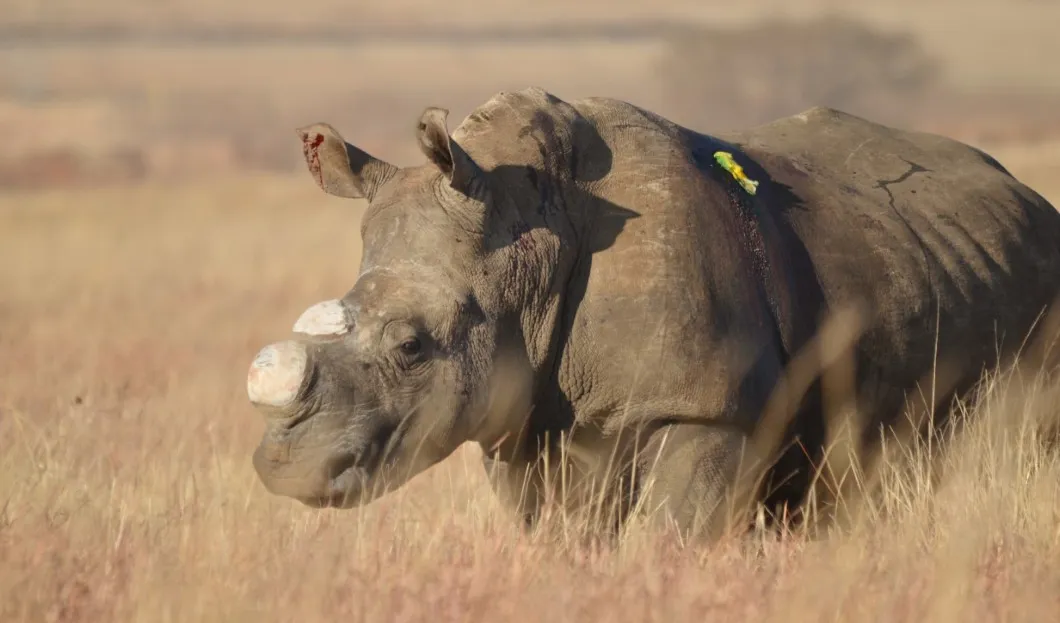
In Africa, the fight against poaching is increasingly at the heart of the concerns of tourism professionals. But poaching, particularly against rhinos and elephants, remains high.
The difficulties of protecting Africa's emblematic animal species such as rhinos and elephants worry tourism professionals, who fear that they will hinder the flow of foreign visitors to the continent.
"Obviously, it has a negative impact," summarized the situation the head of the African Tourism Association (ATA), Naledi Khabo, at an industry summit held in Cape Town (southwest) at the initiative of Airbnb. "Whether it is men or animals, seeing similar deaths necessarily has consequences for our business," she added.
In recent weeks, several events have tarnished Africa's image as a wildlife sanctuary, one of its main "flagship products". First there was the fiasco of the ill-prepared transfer of eleven rhinos from one Kenyan park to another, which resulted in their death by dehydration.
"It is unfortunate (...), it is clear that the case has not been well managed by my officers, and we have taken steps to remedy it," said Kenya's Minister of Tourism Najib Balala in Cape Town. Then there was the case of the Botswana elephants, which is home to their largest population in Africa. Its highly repressive arsenal has made this country a model in the fight against poaching. But in early September 2018, an NGO denounced the death of about 100 pachyderms in an unprecedented massacre that it attributed to the authorities' decision to disarm its rangers. The Gaborone government and scientists have questioned the reality of these massacres - many animals are said to have died of natural causes - but too late, the country's reputation has already suffered from the incident.
Environmental crimes cost the developing countries more than $70 billion a year. Africa is the target of poachers who are tearing off the tusks of its elephants and the horns of its rhinos to satisfy, at a golden price, the demand for traditional Asian medicine. But in recent years, countries that host safari enthusiasts have significantly increased their capacity to combat ivory trafficking. Efforts praised by tour operators.

"It is essential that the government and tourism professionals take strong measures and severely punish traffickers," says Naledi Khabo. According to travel storyteller Anita Mendiratta, the fight against traffickers and poachers has even become a demand of visitors. "Tourists tell us'it's not good'," she says, "anti-poaching is at the heart of their concerns. Tourist activism has become an important part of our industry.”
A former Tanzanian ranger converted to the safari sector, Loserian Laizer also thinks that "smuggling is harmful to tourism". He says that in the famous South African park Kruger, visitors complain about the noise of aerial surveillance patrols. "But we win the battle. I congratulate those who protect wildlife, more and more people understand that this is essential," he adds, "we must try to protect it intelligently. But poaching is not the only threat to wildlife, says Laizer. "The problem is the construction of more and more infrastructure to welcome more visitors," he warns, "it destroys the environment, so we must control this development as well.
According to the statistics, Africa attracts only 5% of tourists from all over the world despite the wide range of attractions including pyramids, Victoria Falls, safaris or deserted beaches. To maximize its potential, the countries should focus on ecotourism and stabilize politically, local tourism professionals say. For instance the number of tourists in Tanzania, offering environmentally friendly safaris and carbon-neutral lodges, has more than doubled since 2006 to more than one million. The sector contributes 14% to the gross domestic product of this East African country.
For Naledi Khabo, South Africa has also managed to establish itself as a must-see destination by "diversifying its products beyond safaris". It has seen a sharp increase in lifestyle-centric visits, with travelers curious to discover disadvantaged townships and rural communities, and enjoy a safari and wine tasting at Cape Winelands. Today, tourism in South Africa employs nearly 700,000 people, including many blacks, a real success in a country where the unemployment rate is around 28%.
Many African destinations rely on hard currency travelers, but Kenya has decided to promote domestic tourism after being shunned by foreigners a few years ago due to post-election violence and attacks. Tourism, Kenya's second largest resource, generated $ 1.2 billion (€ 1 billion) in revenue in 2017.









